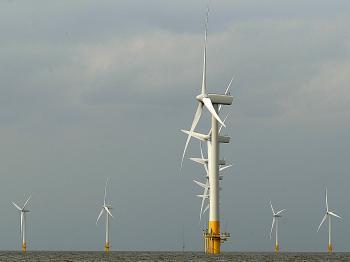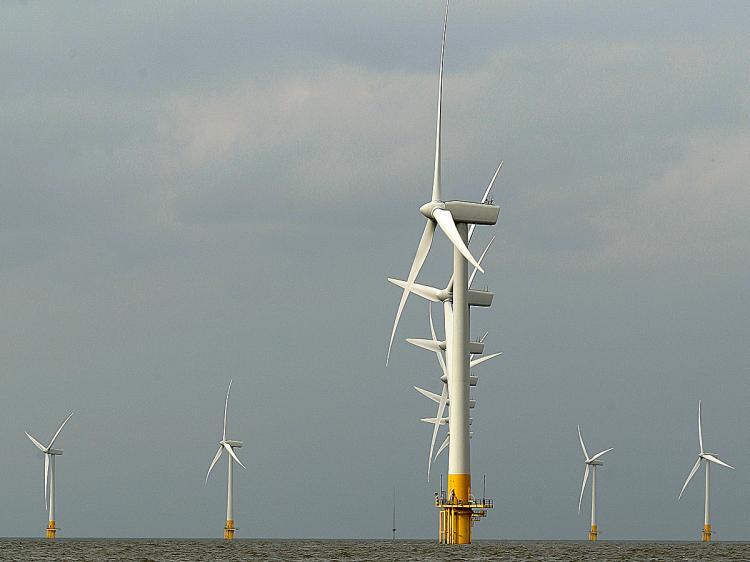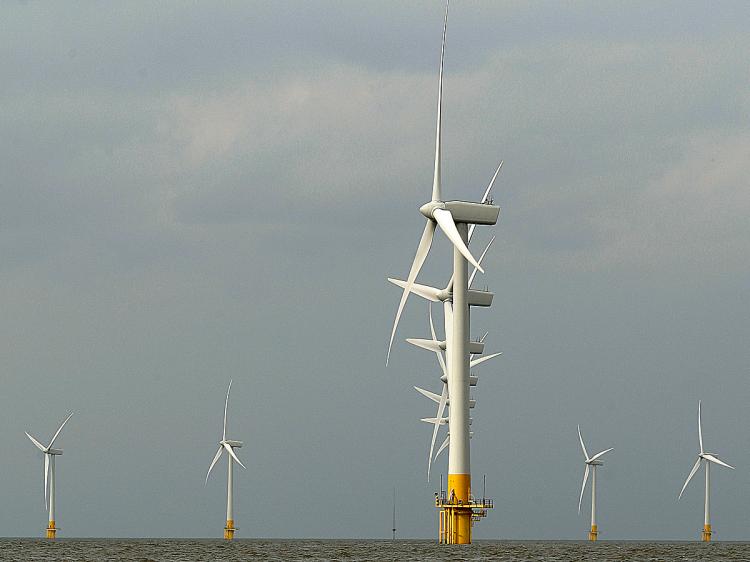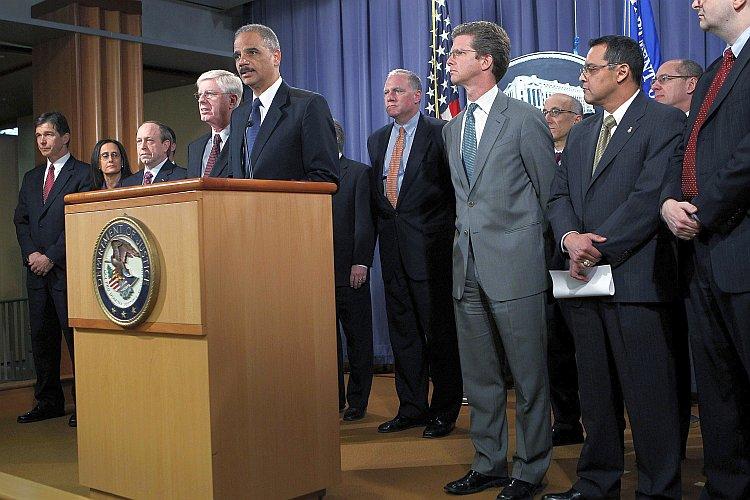First US Offshore Wind Farm a Few Steps Closer
Cape Wind has fought to be the nation’s first offshore wind farm for several years.

Scroby Sands wind farm, 2 miles off the coast of Britain, is one of the UK's first commercial offshore wind farms; Cape Widn hopes to earn the same distinction in the U.S. Shaun Curry/AFP/Getty Images
|Updated:





